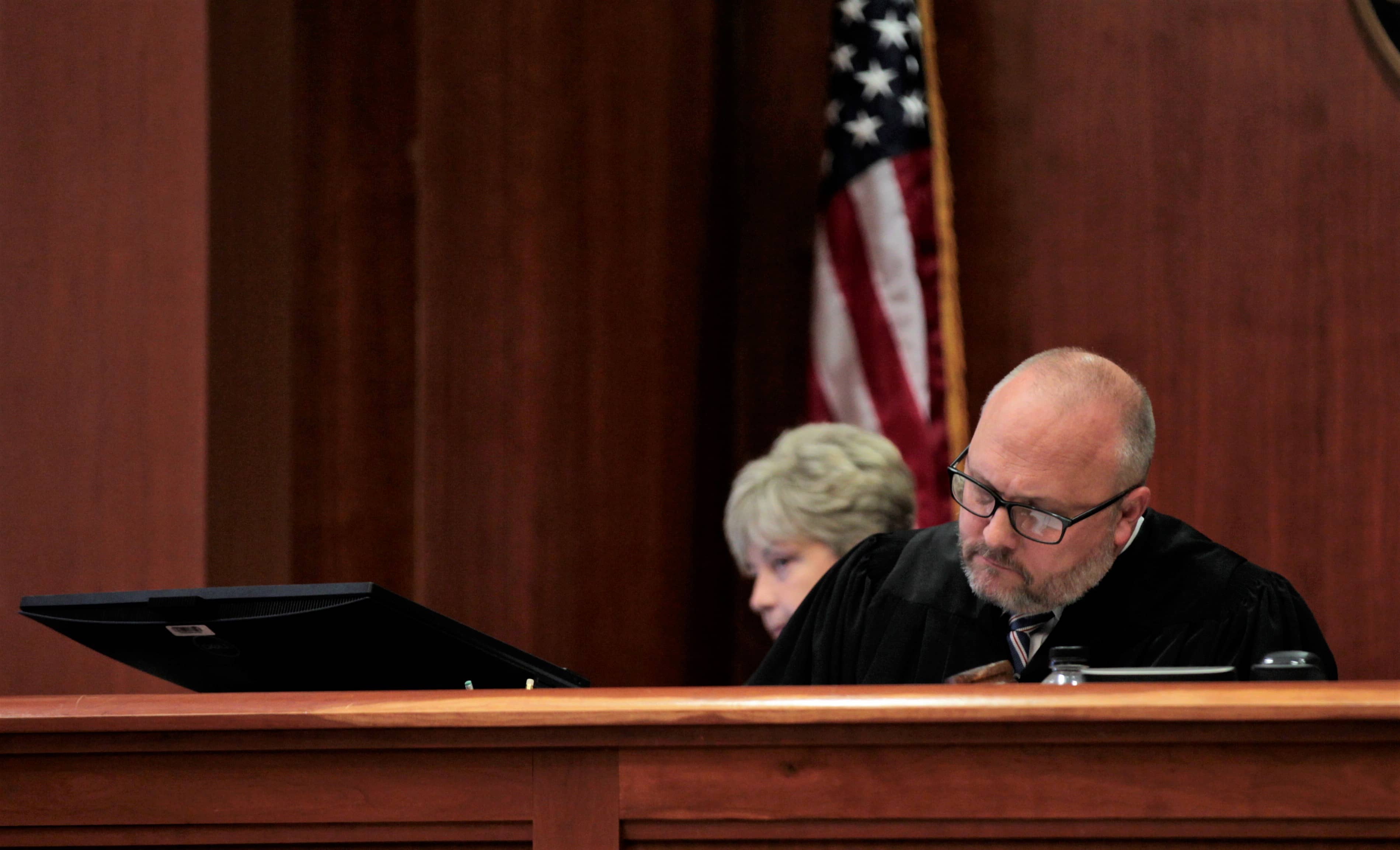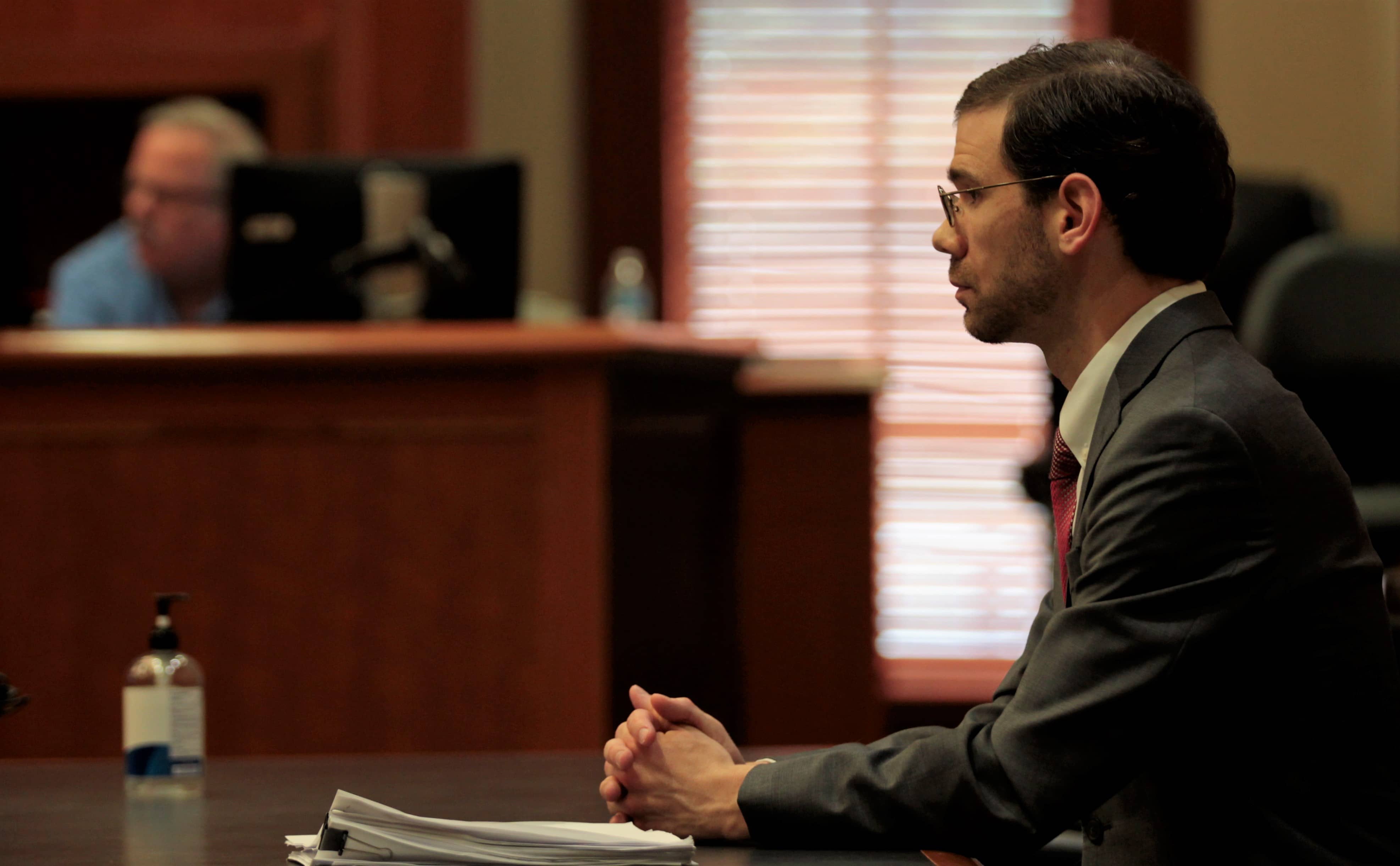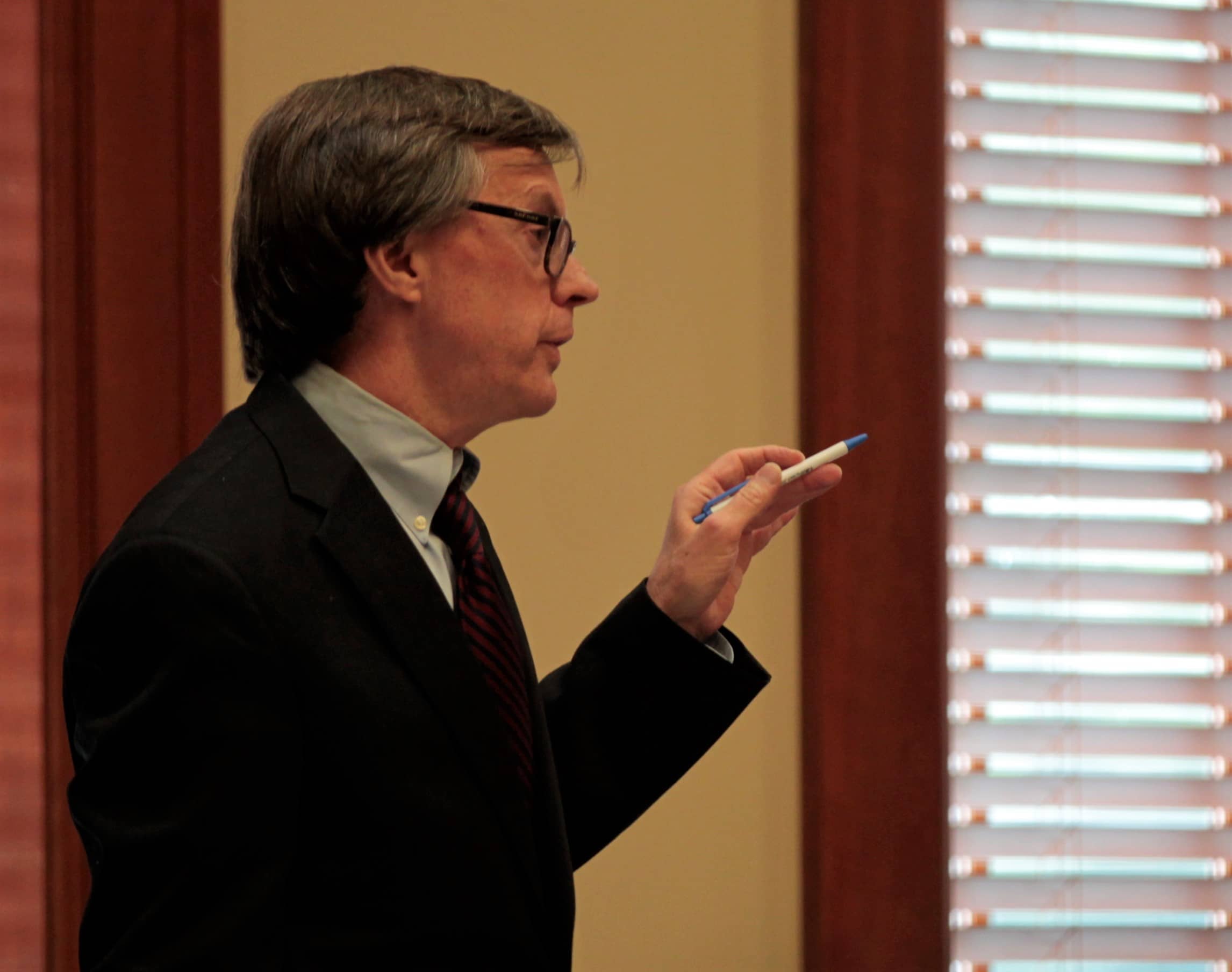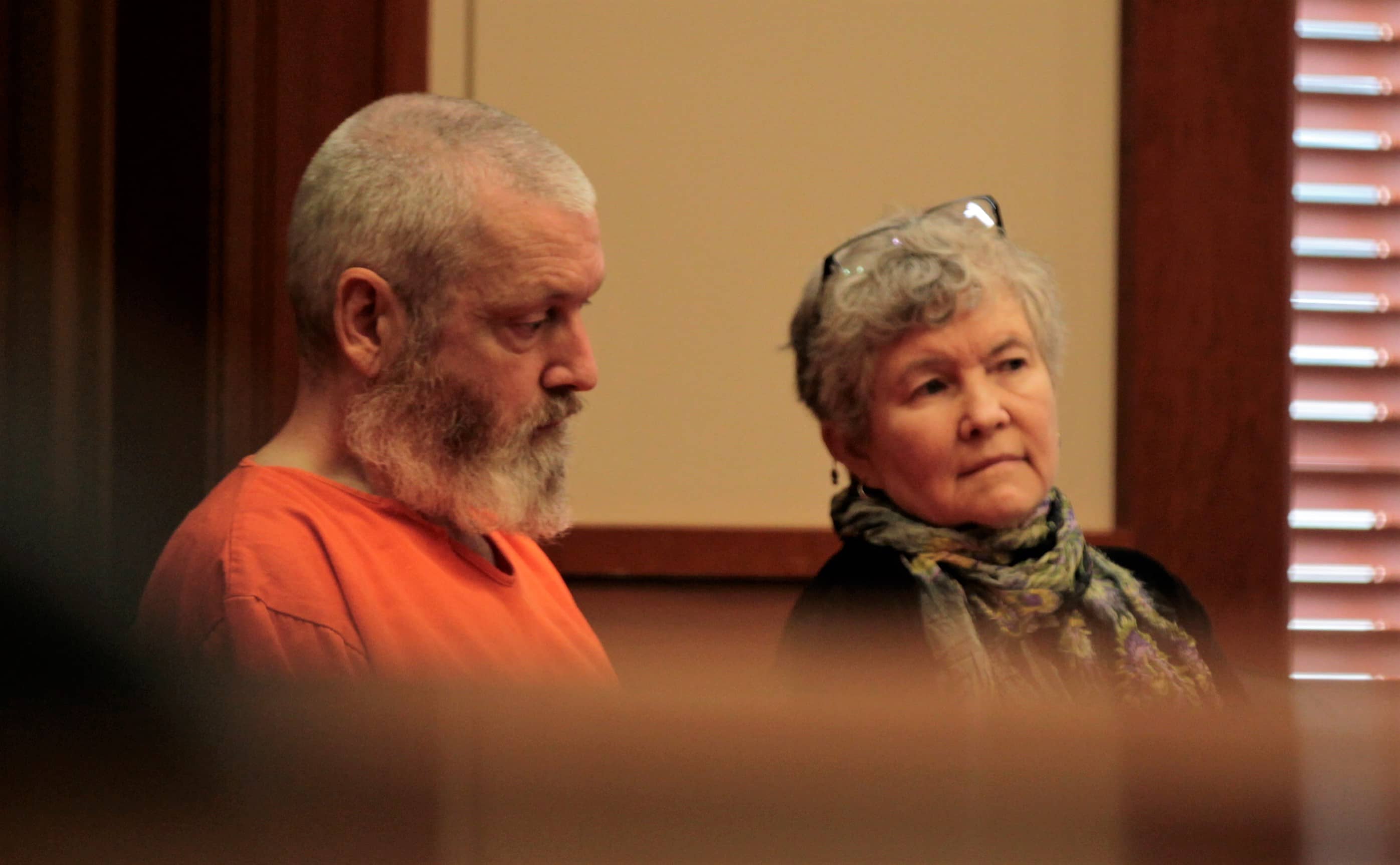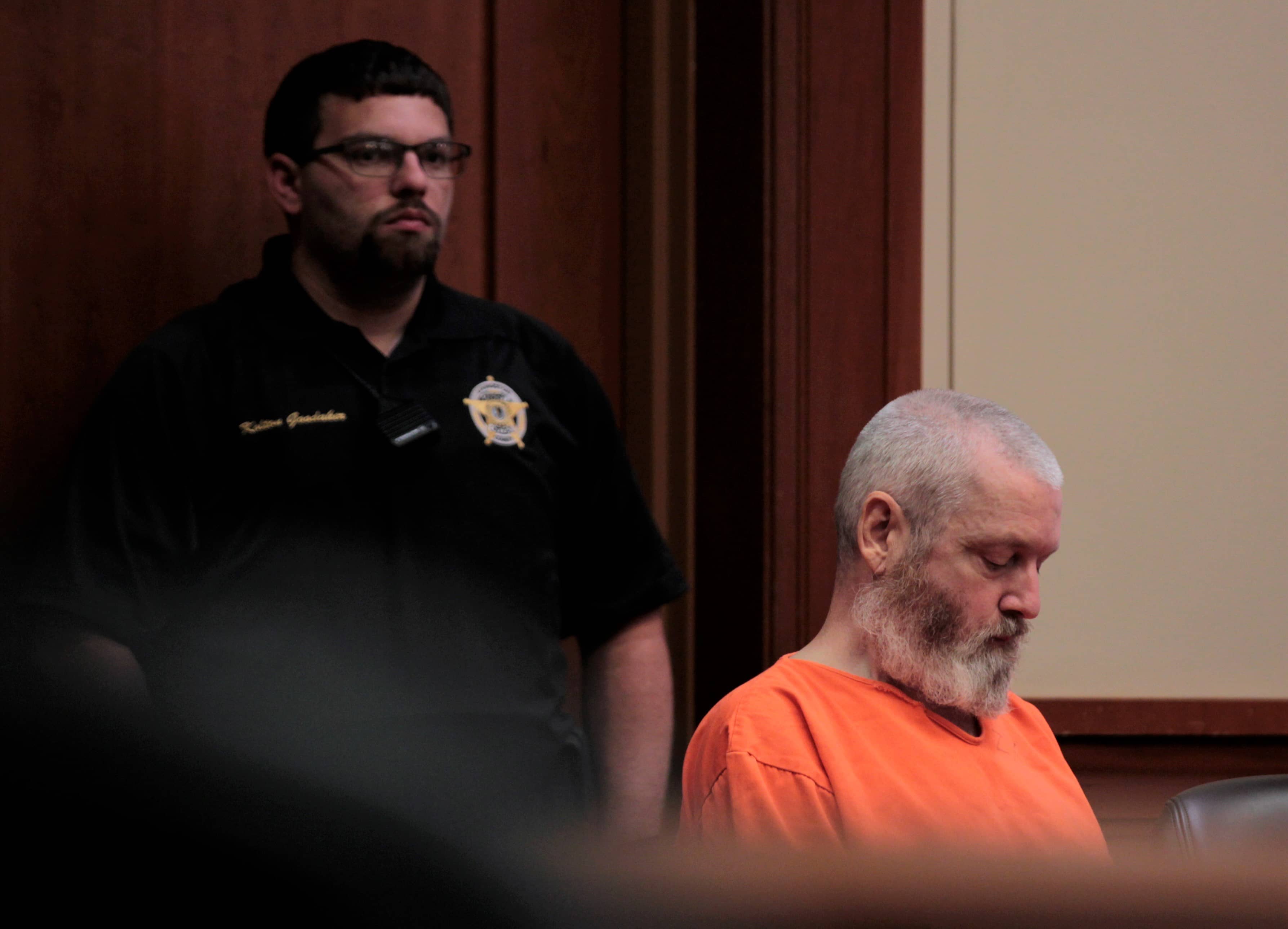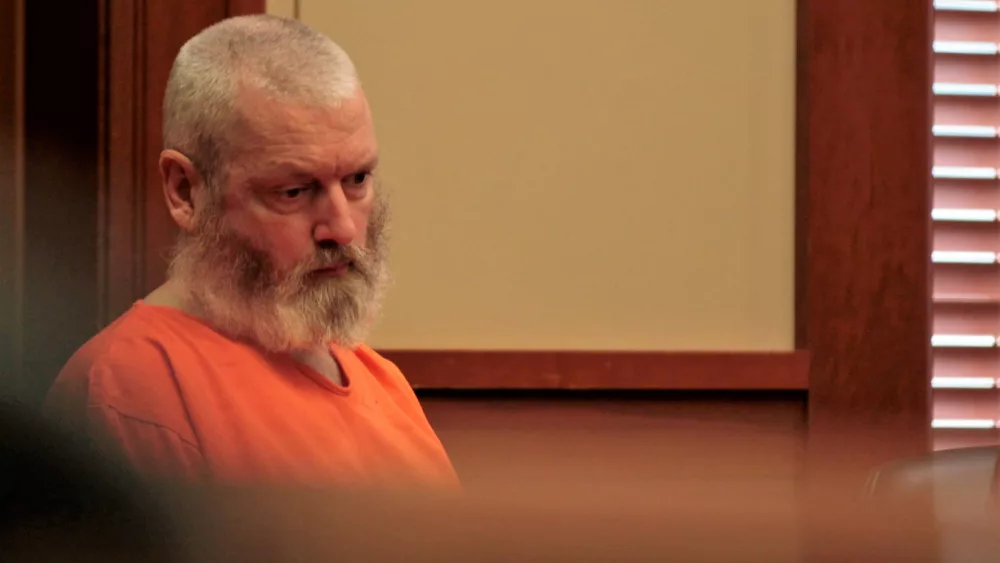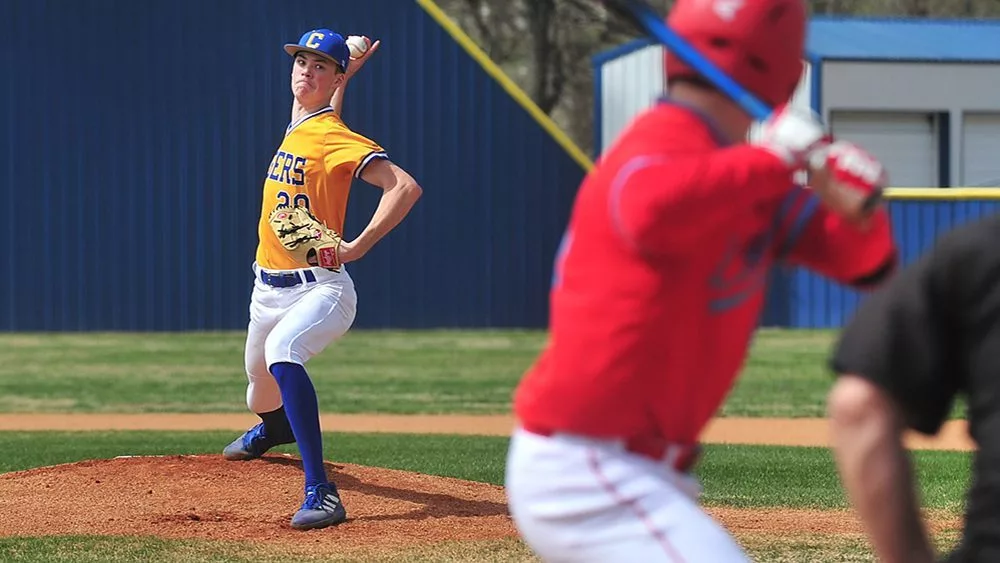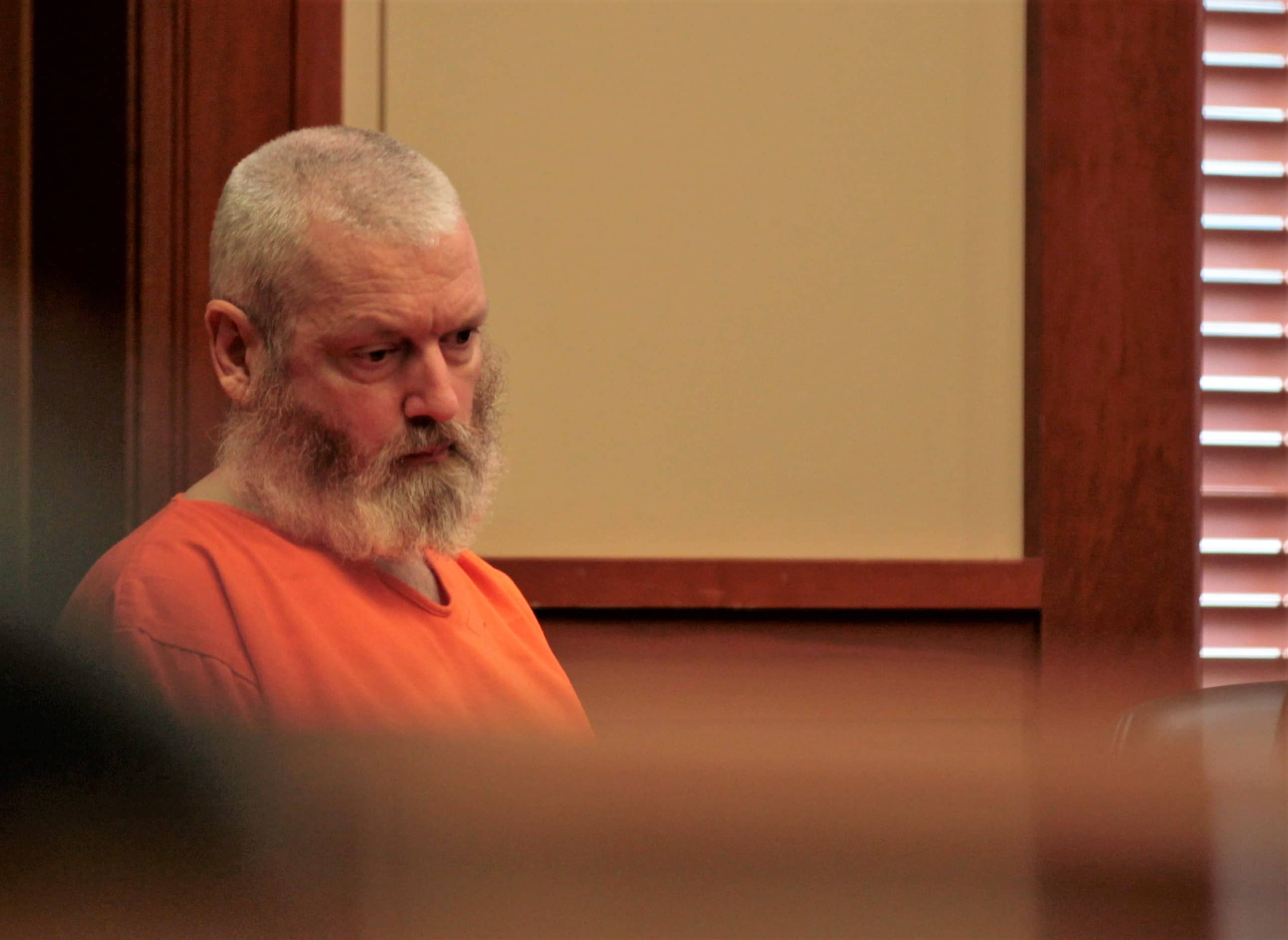
Following Friday morning’s oral arguments in the Livingston County Judicial Center, Circuit Judge Jamus Redd has much to consider — in regards to whether he’s going to rule in favor, or against, an evidentiary hearing in the death penalty case of convicted murderer Kevin Wayne Dunlap.
The former Hopkinsville resident is sitting on death row at the Kentucky State Penitentiary, following the October 15, 2008, Roaring Springs murders of Kayla Williams, Kortney Frensley and Ethan Frensley, and the attempted murder of mother, Kristy Frensley.
Present for this hearing in Smithland, Dunlap didn’t speak, and often stared blankly — either at his feet, or in the lights on the ceiling.
Originally filed and sought by Dunlap and his defense team in 2015, his newest attorneys Dennis J. Burke and Margaret O’Donnell were given opportunity to further illuminate as to why an evidentiary hearing is necessary.
At the heart of the claim is the simple fact that Dunlap allegedly received ineffective defense counsel during his initial trial — which moved straight into the sentencing phase following his plea of guilt, and led the jury to rule in favor of death.
Burke and O’Donnell asserted that Dunlap’s mental faculties were never seriously brought to question, nor deeply addressed, in the original trial. They allege a long history of brain injuries, brain damage, frontal lobe scarring and a mix of medications — including known smoking inhibitor Chantix — played a significant role in his ruthless, obscene outburst of violence on that day, and that Chantix and other medications, combined with other factors, removed inhibitions and moral culpability.
Burke told the court that “at least one juror” would’ve ruled differently, had these mitigating factors been brought against the aggravating details of the case.
Burke also indicated that in at least one instance during jury deliberations, the Bible was referenced, and could have also played an impact on the ruling — which must be unanimous.
O’Donnell, meanwhile, said that 18 Kentucky inmates on death row either have one or no attorneys at their behest. When she and Burke took on the case, the first thing she looked at was Dunlap’s medication use prior and during the criminal act, and that many times in pre-trial investigation and police interrogation, multiple local sources claimed that medications “could have played a factor.”
Furthermore, O’Donnell mentioned that of the 300-plus family photos submitted by the Dunlap family — showcasing a former healthy, happy living style — none of them were entered as evidence by the defense. It’s another element that could have illustrated his act was not of character.
She and Burke urged these, and many other, red flags in the defense’s efforts deem considerable review, which could possibly lead to a different sentencing.
On June 28 of last year, Assistant Attorney General under Daniel Cameron, Christopher Henry, filed a 36-page rebuttal — and he was present Friday for his rebuttal.
He noted a voluntary intoxication claim doesn’t change the heft of the crime, in which Dunlap readily admitted that a bottle of Crown Royal was imbibed during the acts. Dunlap has noted he was “so intoxicated” that he was “unaware” of his actions, but Henry stated there was criminal intent from Dunlap for five reasons:
On, or before, October 15, 2008:
— He had visited the residence before the murders.
— He entered her residence under a ruse, stating he wanted to buy Kristy’s house.
— He brought zip ties and a gun.
— Before he raped Kristy, he implied and asked whether he should rape her, or her daughter.
— And after raping Kristy, he attempted to conceal evidence by cleaning her up, and then burning the house down.
Henry also argued that these aggravating circumstances didn’t prejudice the jury against its decision for the death penalty.
Burke countered that the very reason an evidentiary hearing was necessary is because the factors of medications and mental health must be afforded to Dunlap, or anyone committing such heinous acts, and that mental illness has been present from the onset.
An evidentiary hearing, if agreed upon, would bring Dunlap’s original defense team back into the courtroom, to explain their reasoning and trial strategy for their former client.
It’s worth noting that not a single person in the courtroom Friday, including current Commonwealth’s Attorney Carrie Ovey-Wiggins, were role players in the original trial. Carrie’s father, G.L. Ovey, was the Commonwealth’s Attorney for initial proceedings. Retired judge C.A. “Woody” Woodall III, whom Dunlap besought in a personal letter in the last decade, heard the initial case and the first stages of these motions.
Redd gave no timetable for a decision, citing he’d need a “considerable amount of time” to continue his review of original and new details.
